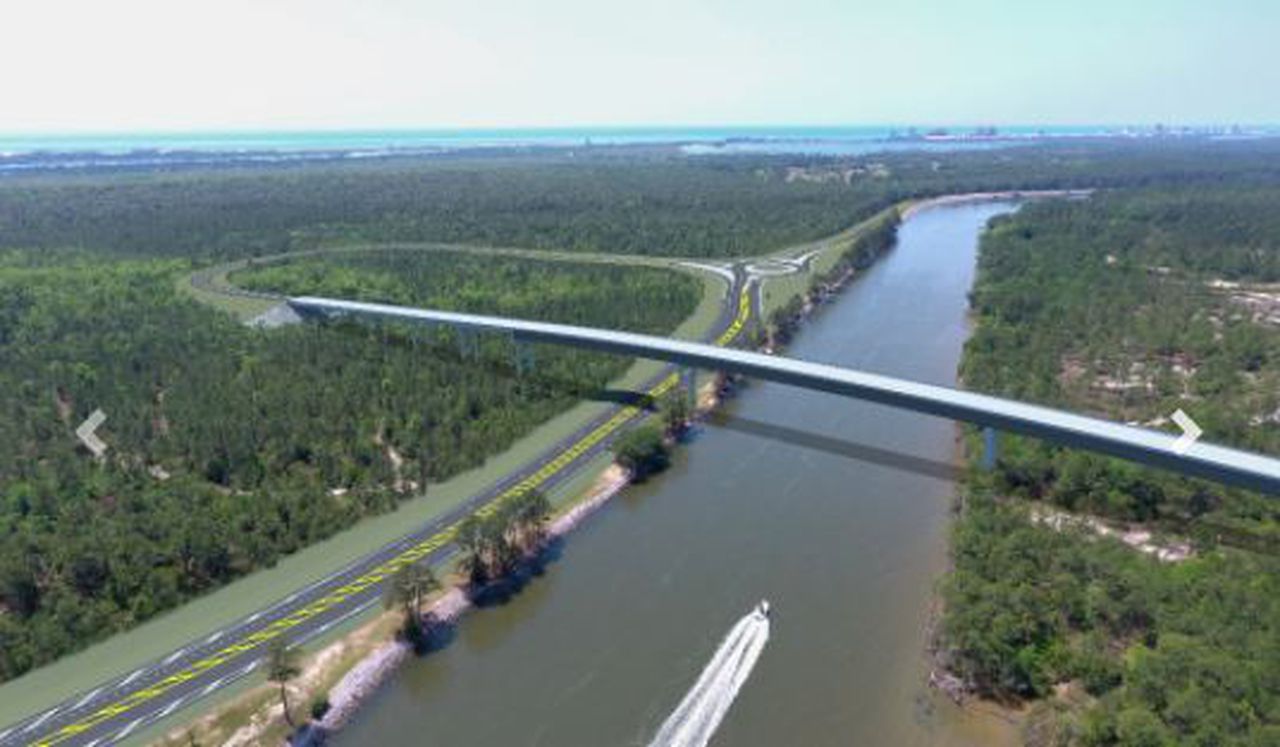Alabama Supreme Court denies ALDOTâs emergency request to build bridge to beaches
Construction on a new bridge that would ultimately connect the Foley Beach Express to Gulf Shores won’t be allowed to continue, according to an order Friday by the Alabama State Supreme Court.
The court, in a 5-3 decision, denied an emergency motion to stay a lower court’s decision for contractors to discontinue building the two-lane bridge over the Intracoastal Waterway. The emergency order was filed on May 18, by Alabama Department of Transportation Director John Cooper.
The preliminary injunction that initially halted the bridge’s construction was granted by Montgomery County Judge Jimmy Pool in a May 17 ruling in favor of the Baldwin County Bridge Co. (BCBC). Pool, in supporting BCBC’s case that Cooper’s actions were meant to harm their business, said the ALDOT director had acted in “bad faith” by pursuing the new bridge project last year.
Pool, in his ruling, claimed Cooper was pursuing the two-lane bridge without conducting traffic studies or even mentioning the project to his boss — Alabama Gov. Kay Ivey.
The bridge company owns and operates a toll bridge adjacent to The Wharf in Orange Beach and approximately 1.1 miles east of the proposed ALDOT bridge. The company had been negotiating with Cooper on an alternative construction plan to its structure that included additional lanes and toll-free options to Baldwin County residents until August of last year.
“The Alabama Supreme Court has decided it wants to review the facts and full record before making a decision about the preliminary injunction,” said Tony Harris, spokesman with ALDOT. “While we are disappointed the Court has left the halt to construction in place for now, we are optimistic that the final ruling on our appeal will be in favor of building the new, free bridge.”
Joe Espy, attorney for BCBC, said the Supreme Court’s ruling keeps Pool’s injunction in place and represents a “victory for Alabama taxpayers who would have been saddled” with what has been roughly estimated as a $120 million bridge.
“Our client’s offer continues to be the truly free option which doesn’t cost taxpayers $120 million and charges no tolls for Baldwin County residents,” Espy said.
The May 18 motion by Cooper’s attorney Ed Haden argued that Pool’s preliminary injunction, “goes to the heart of our constitutional government and separation of powers” in that the judicial branch is directing the director of ALDOT — an executive branch position — “concerning the transportation policies” of Alabama.
“The blatant disregard for governmental functions and responsibilities is enough to cause concern and constitute an emergency,” wrote Haden.
He called BCBC an “overzealous foreign company” that is attempting to strip Cooper of his rights as the director of a state agency. BCBC is owned by DIF, a Dutch infrastructure equity manager.
Haden also said that unless Pool’s ruling was stayed, the “injunction’s terms create the potential for an environmental emergency at the construction site.”
It’s unclear how ALDOT was planning to secure the bridge construction site. Scott Bridge Co., hired last year under a $52 million contract to build the new bridge, had already been working on the project at the time of Pool’s ruling.
Haden’s motion suggested that Scott Bridge Co. and its subcontractors have cleared a strip of land for the access road to the new bridge site that is 200 feet wide, and over 1-mile in length.
“That’s over 26 acres of cleared lane … that is subject to stormwater, erosion and other environmental problems, not to mention public safety issues,” Haden wrote in his motion.
Haden also said the $100,000 the judge requested BCBC to post as a security bond was not enough to cover the potential losses to taxpayers if the preliminary injunction lasts for months. If the injunction lasts for 8 to 10 months, Haden wrote, the delay-damage estimates are in the range of $13 million to $18 million.
